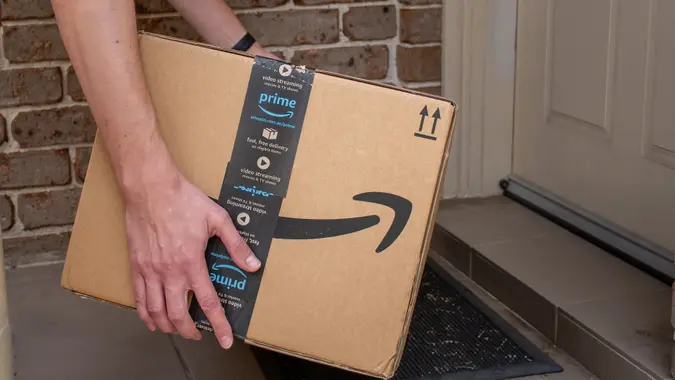Empowerment Journey Step 9

Looking back at the steps in our empowerment journey, we’ve laid out the path to financial freedom.
Empowerment Mindset
Add value to peoples’ lives and get paid to do it – it IS possible to do both. Don’t feel guilty making money, view it as a badge of honor. Don’t just try to increase your income over time, but also the impact you have on others.
Choose Your Adventure
Your career determines the level you can spend/save/invest. Find something that interests you, that you can also make money doing. Careers that harness your unique skills are ideal. Use evaluations like Myers-Briggs to learn more about yourself. Keep an open mind, and talk to lots of people; the perfect career can come from anywhere.
The Crossroads
The key determinant of your financial success is being able to spend less than you earn. This allows you to save and invest the difference, which is how wealth is built. Doing this sounds simple but can be difficult because emotional triggers can cause us to spend more than we should. Be aware of how spending money makes you feel, and learn to say ‘no’ to unnecessary spending so you can say ‘yes’ to freedom.
Build a Moat Around Your Castle
Use the part of your income you don’t spend to build up savings. Savings are like a moat around your financial castle because they prevent you from having to take on debt for unexpected expenses. Savings also provide peace because we don’t have to worry as much. Aim to have 3-6 months of living expenses in savings before you start investing.
The Intervention
Avoid going into debt; use savings to self-fund unforeseen expenses. Today’s culture encourages debt use at every turn, but you can’t have debt AND freedom. The biggest problem with debt is it puts compound interest to work AGAINST us, instead of in our favor (debt is the opposite of investing).
Two Journeys; Wealth or Debt
There are only two paths we can take with money; wealth or debt. Don’t get discouraged if you’re on the wrong path; each paycheck is a chance to can improve your situation by making better decisions. Both journeys are all about momentum; both debt and investments can start small but grow larger like a snowball rolling downhill. Set big goals and focus on them for motivation.
Investing for the Long Run
Inflation is the biggest long-term risk to wealth-building. Stocks and bonds have been the best way to protect against inflation for 200+ years. After savings are dialed in, direct extra income to your investment portfolio. Investing is boring, like planting a tree, but should pay off over the long term. Avoid speculation, which seems exciting but can jeopardize your wealth.
Take Your Financial Pulse
Keep yourself on-track by periodically reviewing your budget. Make sure your expenses are controlled and you know your net income, so you can direct it to its most important use – savings, investments, or spending.
Work the System
Great. You’ve got your goals, and now you’ve got a program to get there. What’s next?
The work!
Everything up to this point is pretty straightforward. It’s just math – how much you make or want to make vs. what you can or cannot afford. Most of us learned to add, subtract, multiply and divide as kids, so running these numbers is not difficult.
What IS difficult is working to CHANGE the numbers to reflect the life we want.
The easiest thing is to slide down the debt journey, and end up trapped by MasterCard, a bloated car payment, a boss they can’t stand, etc. It’s what many do, without even considering the alternative. If you DON’T want this to be you, it doesn’t have to be. But it will take effort on your part. This tweet from Ryan Holiday sums it up well.
When you're lacking motivation, remind yourself: discipline now, freedom later. The labor will pass, and the rewards will last.
— Ryan Holiday (@RyanHoliday) September 4, 2023
Life Is Not “Happening” To You
One trait that tends to separate successful people from those who aren’t is “locus of control“. The concept is simple, each of us either:
Believes our lives are the result of circumstances we can’t control (external locus of control)
OR
Believes we have the ability to control our lives with our decisions (internal locus of control)
Let me strongly suggest you develop an internal locus of control if you don’t already have one. If you’ve read the posts up to this point, and have started to incorporate even a little bit into your life, it should be apparent that changing your circumstances is possible. Small actions done repeatedly can lead to very different outcomes over time.
-
- You CAN find a career you love
-
- You CAN track and manage your expenses
-
- You CAN reduce debt, build wealth, and gain financial independence.
People who started in worse situations than you or I have done these things. Deciding not to care, living beyond our means, building up debt, being unhappy – an external locus of control means all of this is fine.
It’s not our fault!
The system’s rigged. We aren’t smart enough. Life’s unfair, we’ll just end up getting screwed, so why try?
SHADY FINANCIAL COMPANIES MAKE MONEY BECAUSE ENOUGH PEOPLE (SADLY) THINK THIS WAY.
Banks want you in debt. Credit card companies don’t want you doing a budget. They don’t want you building an emergency fund; if everyone did that, they might be out of business.
I hope something you read on this blog helps you get to a better place financially. But if you take nothing else away from this, I hope the knowledge that you have the power to control your destiny stays with you.
If you CHOOSE to stay in debt, not to budget, not to build wealth, I’m good with that. I don’t agree with those things but if that’s what you consciously want for your life and you don’t blame it on anyone but yourself, you’re at least acknowledging that your actions have power (you just aren’t using it).
I don’t know why anyone WOULD choose that, when a few simple actions could set you on what I think is a much better path. But you don’t owe anything to me, this is your journey.
What to Expect In Future Posts
This “Empowerment Journey” series provides a simple roadmap for financial success that anyone can follow, and have hopefully changed how you think about money in the process. Going forward, I’ll discuss more practical and specific options for those that may be struggling with a given step (how to get out of debt for example). I thought it was important to lay the philosophical groundwork first. Thank you for accompanying me on this journey!
Tips as You Venture Onwards
Take ownership of your finances. Know which step of the journey you’re on, work that step, and prepare for the next. Always be looking AHEAD. If you’re finding a career, understand where your expenses are so you know how much money you’ll need to make BEFORE you interview for jobs. This will save time.
If you’re working to get your expenses under control so you can build savings, take a break and research high yield savings accounts so that when you’re ready to start saving, you have an idea of what’s available.
If you’re investing, take a moment to feel proud of making it so far down the path to freedom. But don’t rest on your laurels, revisit your goals. Do they still make sense? Are you hitting them? Are they too SMALL?
Increase Your Earnings, Update Your Plan
For most of us, the money we earn from our career is the top factor that determines whether, and how fast, we reach our goals. Personal finance books are littered with tips on optimizing your expenses, but often the most straightforward way to bring your goals within reach is to make more money.
Math problems assume nothing changes; you can take your current income and budget out your expenses for a whole year if you want, and estimate how many Starbucks lattes you can “afford” over the course of the year. You can estimate your lifespan based on how old people live to on average, and calculate how much fun you can spend the rest of your life. But if you get a promotion or a different job and your pay changes, those numbers are irrelevant and must be updated.
Personal finance often focuses on the negative: an “emergency fund” in case bad (expensive) things happen you didn’t plan on; budgeting can be seen in a negative light as restricting freedom to spend money how we want. But it’s important to remember that life will involve POSITIVE financial surprises as well as negative ones.
If you’ve reduced expenses where possible and still aren’t saving/investing as much as you’d like, you may want to focus on making more money. Go back to STEP 2, get education, network, study, find a career that works for the financial life you want.
Align Your Career To Your Life
As you move farther down the path of financial freedom, it may be worth considering whether or not your career is satisfying you and your family in ways other than financial.
-
- Is there work/life balance
-
- Is it intellectually stimulating
-
- Are you doing work you believe in or just “punching the clock”?
If needed, consider the tradeoffs of pursuing something that more closely aligns with your passions, or fits in better with your schedule. Money isn’t the only thing in life, but having a better handle on your finances can give you the breathing room, the freedom, to optimize your career and find some balance.
It may be worth it to you to build your investment portfolio more slowly by accepting a job with less pay, but have more freedom to spend time with family, or travelling, or doing something that resonates more with your values.
Progress Isn’t A Straight Line
We all want to see results right away. We see the path from A to B and think it’s a straight line. Unfortunately life is messy, and the journey to financial freedom may involve some setbacks before you ultimately reach your goals.
For example, I recently left a job I was unhappy with for some time. I made good money there and was able to crush my debt, build up savings and investments, do all the right things financially.
But I wasn’t learning anything. I didn’t believe in the company’s vision. I knew it was a dead-end. I started to resent myself for staying there. It was affecting my attitude and relationships outside of work. I dealt with these feelings for a while, but eventually I realized: This is what an EMERGENCY FUND is for. I knew I owed it to myself and my family to find a better job.
We’re human, we aren’t robots. We can create the perfect plan but life rarely unfolds in a way that leads straight to our dreams without a setback or two. If your empowerment journey takes a detour, accept it and try to be kind to yourself while you plan how to get back on track. The whole point of finding financial freedom is to improve your quality of life. A big part of that is how you treat yourself (and those around you) when you fall short.
As I write this, I’ve been living off savings for a while. On the positive side, this has allowed me to spend time with my little girl. We went to the beach and I’ve been at every soccer game, dance practice, etc. I’m starting a business, networking, and taking online courses to increase my skills. I’ll be back to grinding soon enough, but having the ability to leave a toxic work environment has been a real blessing.
Money Fades Away
My biggest financial goal is to not have money concerns rule my life. I want my money to serve me, not the other way around. Maybe some of you feel the same.
Sure, the money I’ve been living off of while job searching could have been invested and assuming a certain percentage return, I could easily calculate what this period of not working has cost me. But sometimes you need to take one step backward to take two steps forward. A big portfolio doesn’t mean much if the only way to get there is through resentment and regret.
The negative is, when I go back to full-time work, I’ll need to replenish savings and get back on track with investing. I’ve gone backwards a couple steps in my empowerment journey, but that’s ok – I have a roadmap for where I’m going.
And so do you.
Send me a message or follow me on Twitter to continue the conversation.
Thanks for reading!





